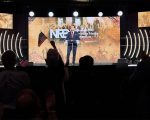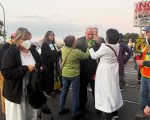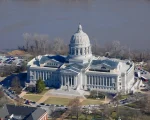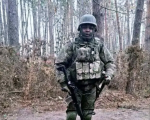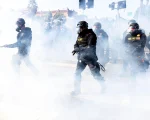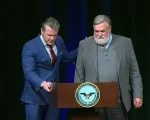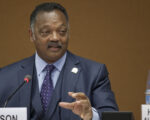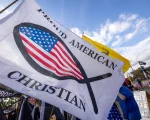News
Hegseth Frames Trump Policies As ‘Biblical’ in Address to Christian Broadcasters
During an address at the National Religious Broadcasters convention, the defense secretary told attendees that President Donald Trump is fighting for their faith and returning America to its Christian foundations.
Bay Area Pastor, Shot With a Pepper Round, Files $5M Claim Against Federal Government
Rev. Jorge Bautista is seeking $5 million in damages from the federal government and plans to sue the unnnamed agent individually.
The Room Where a Bad Bill Happens
The head of the Missouri Senate Education Committee thinks we should force public schools to teach that the Constitutional Convention prayed after Benjamin Franklin said they should — even though it very much never happened.
Watchdogs Say Russian Church Helped Recruit Young Kenyans Who Have Fought in Ukraine
The alleged pipeline is a sign that the Russian state is leveraging its national church’s expansion into Africa.
Interfaith America Engages the ‘Promise of Pluralism’ Ahead of Trump’s State of the Union
A virtual media briefing titled ‘America at 250: Religion, Democracy, and the Promise of Pluralism’ covered solutions to the pressing issues of social isolation, political polarization, and bridging divides in the workplace and on college campuses.
400 Christian Leaders Urge Resistance to Trump Administration on Ash Wednesday
The statement’s signers include a mix of denominational leaders, seminary presidents, scholars, and leaders of prominent congregations.
Review: Dispatches From Mormon Zion
Combining gifted storytelling with keen analysis, Ryan Davis illuminates lived experiences within the LDS community and offers thoughtful reflections on what it might mean to share one heart and one mind in today’s polarized world.
Doug Wilson Preaches at Pentagon, Compares Services to Day of Pentecost
The controversial ‘paleo-Confederate’ Christian Nationalist pastor stood at a podium on Tuesday as the guest preacher for the latest monthly Christian worship service held for leaders of the U.S. military.
‘I Am Somebody!’: Jesse Jackson, Civil Rights Leader Who Ran for Presidency, Dies at 84
‘I don’t think Jesse Jackson saw his political life as something different from his call from God as a preacher,’ said the Rev. Valerie Bridgeman.
Republicans, Southerners, Trump Backers Mostly Likely to Support Christian Nationalist Ideas
A new report from the Public Religion Research Institute shows deep divides over the place of Christianity in the U.S.

